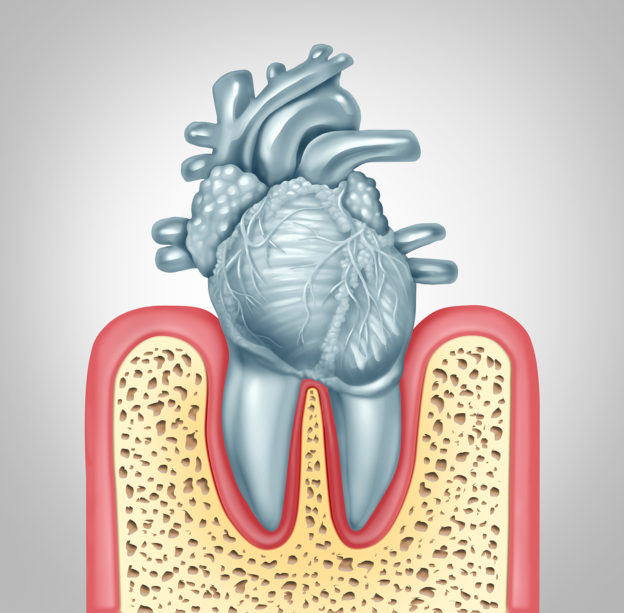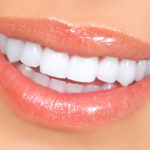By David Blyweiss, M.D., Advanced Natural Wellness
July 17, 2019
Most physicians don’t have much training in oral health. They don’t have a lot of interest in it, either. After all, there are dentists, periodontists and endodontists to take care of those concerns.
But as a certified functional medicine physician, I have a great deal of interest in what is going on in your mouth. And for good reason…
I notice that patients with gum conditions and dental problems are more likely to experience more serious health concerns than people who have good oral health. And there is a reason for this.
As it turns out, all of those nasty, gum-destroying bacteria (P. gingivalis and others) don’t just stay in your mouth. They also escape into your bloodstream.
Once there, they wreak all sorts of havoc.
MD Exposes the Hidden Danger to Your Eyes

When your eyesight starts to fail, it's a real problem. Suddenly you can't go to the grocery store... you can't get to the doctor if you have an emergency... you can't meet your friends for dinner…
Your "regular" doctor doesn't have time to keep up with the latest research. And the same goes for eye doctors. They go to school to learn how to fit you for glasses and contacts, but have no way of preventing the damage and loss of eyesight that threatens your freedom and independence.
Let me show you something that explains a LOT about how your eyes work.
In my FREE Special Report, I'll show you a HUGE, untapped resource for your eyes that safely and naturally restores clear, effortless eyesight.
Click here to get started...
- They damage the walls of your blood vessels, contribute to the buildup of arterial plaque and can even cause blood clots.
- The DNA from dental gingivitis can slip into the synovial fluid around your joints. This causes inflammation, pain, stiffness… and arthritis.
- These bacteria can travel from your mouth to your brain, where it appears to play a role in the development of Alzheimer’s. Not only that, they may also speed up progression of the disease.
- Chronic periodontitis also might also be linked to an increased risk of erectile dysfunction and diabetes.
Considering that nearly half of all Americans aged 30 and older have gum infections (periodontitis), this makes gum disease a major health threat.
But what causes periodontitis in the first place?
Gum Disease isn’t Always Caused by Poor Dental Care
I’ll give you the honest truth. Some of my gum disease patients are diligent about their dental care. They brush and gargle two or three times a day, and floss after every meal.
Others are more lax. They only care for their teeth once a day. Some floss, some don’t. Some rinse, some don’t.
Yet patients on both sides of the spectrum can be plagued with gum problems. How does that happen?
There are two things I’ve noticed over the years.
The first is that many of my gum-challenged patients are low on CoQ10. And I’ll tell you the same thing I tell them. No matter how much you brush and floss, it won’t do anything to treat this deficiency.
Yet, without enough CoQ10, your body can’t produce the cellular energy needed to heal and repair periodontal tissue.
Are You Suffering From...
- Love handles and a pot belly
- Romance that isn't what it used to
- Forgetfulness and inattention
- Low (or no) strength and endurance
- A sex drive that's shifted into neutral...or worse
If so...you may have Mature Male Burnout. Click here to discover more about this unique condition and what you can do about it.
As a result, I personally recommend that everyone take at least 100 mg daily. The most biologically active form of CoQ10 is called ubiquinol. It’s significantly more absorbable than regular CoQ10.
It powers up all of the mitochondrial cells that provide your cells with the energy and vitality necessary to protect not only your oral health, but also your heart and overall health. (If you take a statin drug, it is especially critical to supplement with CoQ10 since statins deplete your body of this enzyme.)
For even better results against gum disease, look for CoQ10/ubiquinol formula that comes in a gel or spray form. Then, apply it directly to your gums where it can be absorbed directly into the tissue… and go to work immediately to reduce inflammation.
Second, brushing and gargling come with their own concerns.
Sure. These activities remove “bad” bacteria in your mouth. But they also strip your mouth of “good” bacteria. And without plenty of healthy, protective microbes to safeguard your oral environment, it allows any unhealthy bacteria stuck in all of those nooks and crannies to gain a foothold.
This makes it a great idea to treat your mouth the same way you treat your gut – by increasing the ratio of healthy microbes with the use of an oral probiotic.
It’s so easy to do!
Oral probiotics are somewhat similar to a breath mint. You place it in your mouth, but don’t chew it. Just roll it around until it completely dissolves.
Patients who use these regularly often see reduced inflammation, less soreness and bleeding, and significant recovery in just a short time.
In the meantime, don’t forget to keep up on your regular dental care!
- Brush twice daily with a toothpaste that is free of fluoride, carrageenan, formaldehyde, triclosan and polyethylene glycol (PEG). You can also search the internet for ways to make your own, natural, homemade baking soda toothpaste.
- Follow-up with a good flossing.
- If you have a water pick, use that right after flossing to remove any remaining debris.
- Rinsewith a mouthwash that’s fluoride, alcohol and sugar free.
- Visit your dental care professional at least every six months for a good cleaning and exam. If you have gum disease, increase the number of visits. Get checked out every two to three months and I expect you will soon not be looking so “down in the mouth.”
SOURCES:
Kim J, et al. Periodontal disease and systemic conditions: a bidirectional relationship.Odontology. 2006 Sep; 94(1): 10–21.
Reichert S, et al. Detection of oral bacterial DNA in synovial fluid. J Clin Periodontol. 2013 Jun;40(6):591-8. Epub 2013 Mar 28.
Dominy SS, et al. Porphyromonas gingivalis in Alzheimer’s disease brains: Evidence for disease causation and treatment with small-molecule inhibitors. Sci Adv. 2019 Jan 23;5(1):eaau3333.
Oğuz F, et al. Is there a relationship between chronic periodontitis and erectile dysfunction? J Sex Med. 2013 Mar;10(3):838-43. Epub 2012 Dec 4
Prakash S, et al. Role of coenzyme Q10 as an antioxidant and bioenergizer in periodontal diseases. Indian J Pharmacol. 2010 Dec; 42(6): 334–337.
Haukioja A. Probiotics and Oral Health. Eur J Dent. 2010 Jul; 4(3): 348–355.







